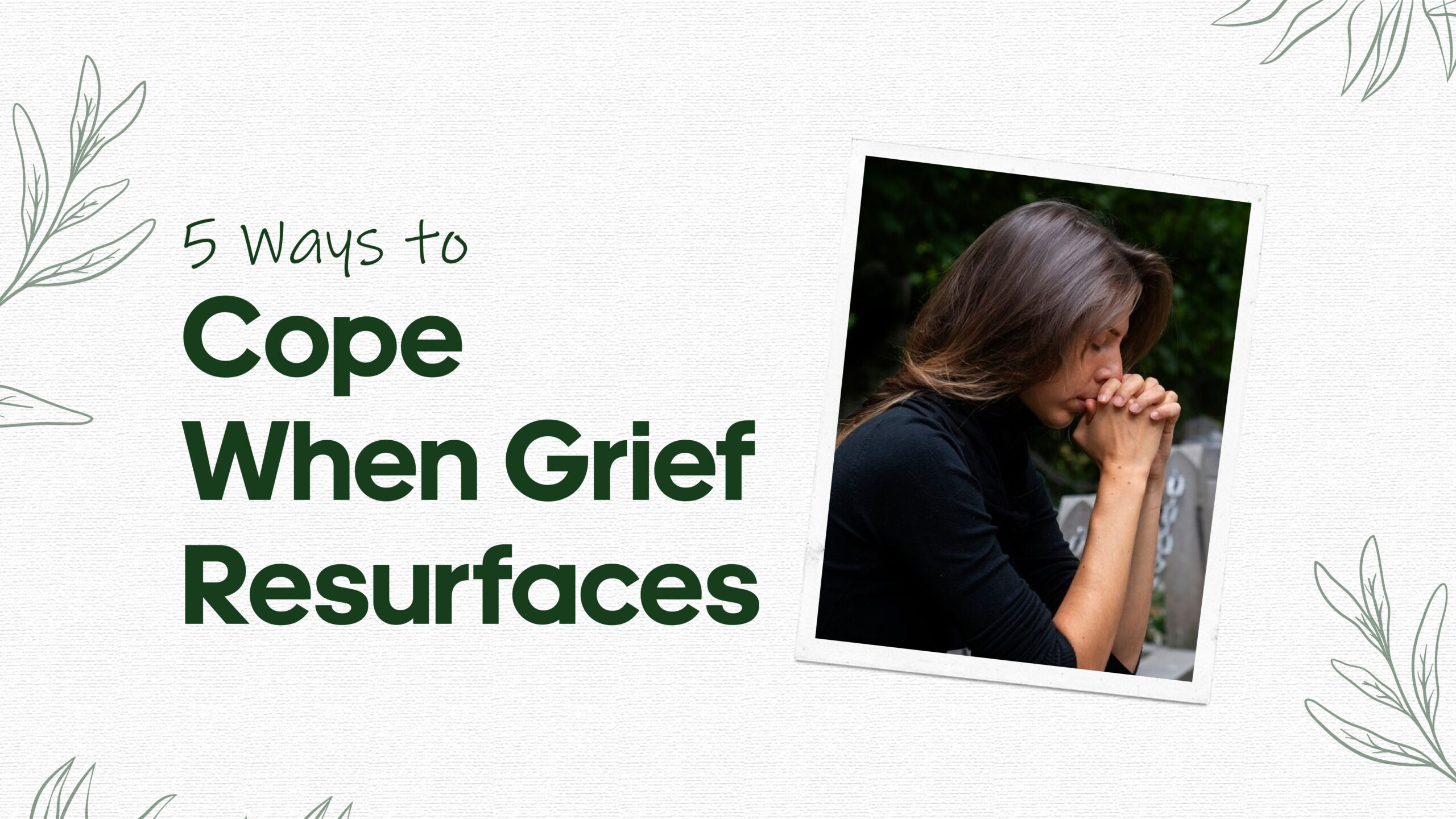
Grief is rarely a one-time experience. It can ebb and flow, resurfacing unexpectedly, even years after a loss. Maybe it’s a song, a scent, or an anniversary that brings the memories flooding back. When these moments happen, it’s easy to feel like you’re back at square one. But remember, resurfacing grief is a normal part of the healing journey. Here are five ways to navigate these waves of emotion and find peace in the midst of your sorrow.
1. Embrace Your Emotions
When grief sneaks up on you, the first step is to acknowledge it. Trying to suppress or ignore these feelings can actually intensify them, making them more difficult to manage in the long run. Allowing yourself to feel the sadness, anger, or longing is a healthy and essential part of healing.
Embracing your emotions doesn’t mean wallowing in them. It means giving yourself permission to feel without judgment. Consider keeping a journal to write down your feelings or sitting quietly with your thoughts for a few moments. Grief often returns in layers, and each layer you process helps you move forward.
2. Lean on Your Support System
Grief can be isolating, especially when it resurfaces long after others may have stopped asking how you’re doing. But it’s okay to reach out. Talking with friends, family, or a support group can help you process your emotions in a supportive environment. Sometimes, simply sharing your feelings aloud can bring a sense of relief.
If there are people in your life who knew your loved one, they may also appreciate reminiscing together. Sharing memories can keep your loved one’s spirit alive and offer comfort to everyone involved. If you’re unsure who to talk to, consider joining a local or online bereavement group where others understand the journey you’re on.
3. Honor Their Memory in New Ways
When grief resurfaces, creating a new ritual to honor your loved one can be a powerful way to channel your emotions. Rituals provide structure and meaning, allowing you to remember your loved one in a positive light.
Think about planting a tree in their honor, donating to a charity they cared about, or setting aside a specific day each year to celebrate their memory. You could also create a scrapbook of cherished moments or write a letter expressing everything you wish you could say. These actions serve as a reminder of their lasting impact on your life and allow you to grieve with purpose.
4. Practice Mindful Self-Care
Resurfacing grief can be emotionally exhausting, so practicing self-care is crucial. Grief can make it difficult to stay grounded, so try focusing on small, nurturing actions to take care of your body and mind. Self-care is not a luxury—it’s a necessity, especially during emotionally intense periods.
Consider incorporating gentle physical activities like yoga or walking in nature to soothe your mind. Practicing mindfulness exercises, such as deep breathing or meditation, can help anchor you in the present moment. Remember that self-care can be as simple as a warm bath, a good book, or spending time with someone who brings you comfort. These practices don’t erase the grief, but they do provide balance and relief.
5. Recognize When to Seek Professional Support
Sometimes, grief can feel overwhelming and persistent, especially if it resurfaces frequently or prevents you from living your life fully. There’s no shame in seeking help when you need it. Therapy can provide you with tools to process complex emotions and work through difficult memories in a safe space.
Prolonged grief, sometimes called complicated grief, is a condition where feelings of loss are intense and long-lasting, making it hard to move forward. If you’re finding it challenging to function in daily life due to grief, consider reaching out to a therapist or grief counselor. Professional support can guide you toward acceptance, healing, and a renewed sense of purpose.
Finding Your Path Forward
Resurfacing grief can feel like a setback, but it’s actually part of the journey. Each time grief reappears, it’s an opportunity to reconnect with your emotions, honor your loved one, and find strength within yourself. Remember that there’s no “right” way to grieve, and everyone’s path is unique.
You don’t have to face these moments alone. Reach out with any questions or just to talk—at Cremation Service of Western NY, we’re here to help, offering compassion, guidance, and understanding. Grief may never fully disappear, but with the right support and strategies, you can find peace and move forward, one step at a time.

 Cremation Service of Western New York can provide you with answers to many commonly asked questions about cremation. Our goal is to provide detailed comprehensive information regarding cremation and the services we can provide for you.
Cremation Service of Western New York can provide you with answers to many commonly asked questions about cremation. Our goal is to provide detailed comprehensive information regarding cremation and the services we can provide for you.